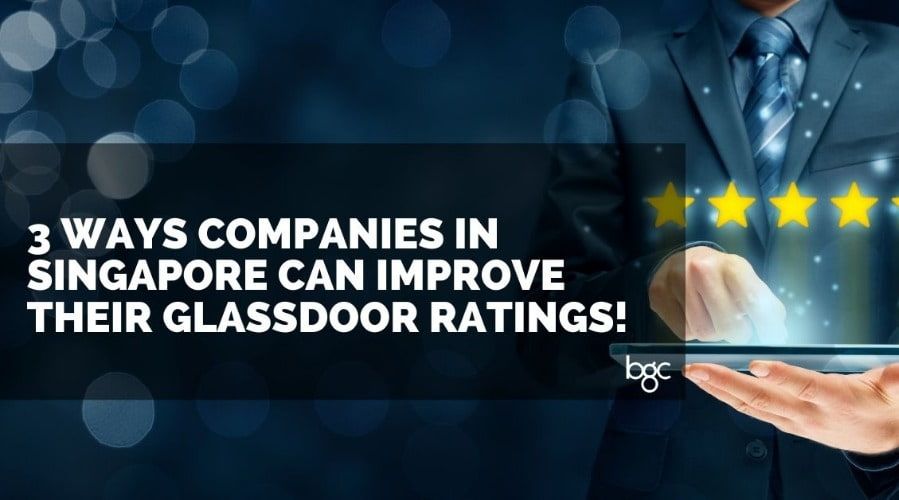Glassdoor is a review website favoured both by HR executives and job seekers. For the uninitiated, Glassdoor allows individuals to both write and read different reviews regarding the company. In other words, it’s a website that offers a no holds barred inside look into how a specific company truly functions.

However, a bad event or two can lead to potentially devastating results on Glassdoor. Imagine this scenario. The current economic recession has led to your company to make the decision of letting go several employees. Unfortunately, now you have a group of unhappy employees, who might write a scathing review of your company and its operations on Glassdoor.
This might not seem like a problem until your company is looking to hire someone. These days, both Gen Z and millennial job seekers are looking for a workplace that shares the same values as they do. Coming across several bad reviews on Glassdoor can scare some promising talents away. Which is why HR executives, marketers, and recruiters stress the importance of cultivating positive reviews on company review websites such as Glassdoor.
As a manpower recruitment agency in Singapore, we understand the importance of having a positive rating on Glassdoor. If your organization is in trouble, you might want to follow the steps below to raise your Glassdoor ratings.
1. Determine Company Reputation

Before you begin fixing your organization’s rating on Glassdoor, the first thing you should do is research your company’s reputation. Search through the internet to find out what both your former and current employees are saying about you. Other than Glassdoor, Google Reviews and social media websites such as Facebook are good ways to figure out what your employees are saying about the company.
Don’t freak out if you figure out that the organization doesn’t have a favourable rating on Glassdoor. The reasons for this can range from bad reviews to just the lack of reviews to boost the ranking up. However, one way to help you scope out the damage on Glassdoor is to simply look through the reviews. Are there more positive reviews than negative reviews? Or do the negative reviews take up the majority of your company’s Glassdoor page?
Keep in mind that if there is a substantial number of negative reviews on Glassdoor. There could be an underlying reason why your employees are unhappy. And the organization might need to rectify it.
Pro-Tip: It’s important to remember that most companies fail to achieve a positive rating on Glassdoor without a solid plan.
2. Respond to Negative Reviews Properly

It might be tempting but try not to remove negative reviews. Similarly, it might also be tempting to be defensive and respond negatively to unhappy reviews. Instead, try to respond to negative Glassdoor reviews in a cool, calm, and collected sounding manner.
How to Respond to Negative Glassdoor Reviews the Right Way:
Pick the right tone: As mentioned, the right tone matters when it comes to responding to bad Glassdoor reviews. Not only should your replies sound collected and calm. It should also sound professional. If you have trouble deciding what tone to use in your response, apps such as Grammarly can be useful. The software does a lot more than check your grammar and spelling errors. It can also be used to discern the tone of your comment, article, or writings in general.
Be polite: Despite the negative connotations you’re responding to in the review. It’s important to still remain polite in your response. As a HR or marketing executive, keep in mind that you don’t have to write a long fledged response. Instead, you can keep it simple by responding with a simple, “thank you” at the beginning of your comment.
According to ReviewTrackers, thanking your employees for their review, tells both the commenter and silent viewer that your organization cares for any form of feedback. It’s also a good way to prove to your silent viewers that the organization is looking to change its ways. In addition, it never hurts to be polite online.
Apologise: Whether you agree with the review and the statement or not. The first thing you should do is apologise for the negative experience.
Address the main issues: Now that you’ve gotten your apologies and niceties out of the way. It is time to tackle the main issues presented. Don’t be afraid of addressing the issues mentioned in the reviews directly. Doing so shows that you’re actively reading and acknowledging the core issues in different employee reviews. If accusations were thrown out (e.g. my supervisor was biased), conduct an internal research and take the conversation away from the public eye.
However, despite the niceties, don’t forget that you’re allowed to stand up for yourself online. Especially when it comes to baseless negative reviews!
Pro-Tip: There can be times where HR and marketing executives will come across false negative reviews on Glassdoor. As a HR outsourcing agency in Singapore, we recommend taking these reviews seriously. Take it to the leadership team to conduct an internal company investigation. On the social media front, you should respond politely and be transparent with the organization’s stance and policies regarding false accusations.
3. Encourage Positive Reviews

One way to overcome negative Glassdoor reviews and ratings is by encouraging positive reviews. Whilst we don’t encourage HR and marketing executives in Singapore to manipulate their employees into sending positive reviews. Encouraging happy and well-adjusted employees within the company to send in their reviews on Glassdoor might be beneficial.
The key to garnering more positive reviews from your employees is to find the right timing. We recommend asking your employees to submit a favourable Glassdoor review during promotions, good meetings, and after memorable company bonding activities. Not only will the reviews likely be very positive. Your employees might also be able to personalise their reviews to reflect the true experience of how it’s like to work with your organization.
Similarly, HR and marketing executives should also respond to positive reviews. Thank your employees for submitting positive reviews and take the time to emphasise your company’s core values. As well as the organization’s commitment to improving the different policies and the office environment in place.
Glassdoor reviews are not going to be obsolete anytime soon. As mentioned, both Gen Z and millennial employees are choosing to work with organisations who share the same values they do. The key to attracting a larger pool of talent in competitive industries lies within your Glassdoor page. What are some of the steps you’re taking to improve your Glassdoor ratings?
What are some proven methods to help improve Glassdoor ratings? Share them with us in the comments section below!
Read More: How Tech Can Complement Your Current HR Structure
